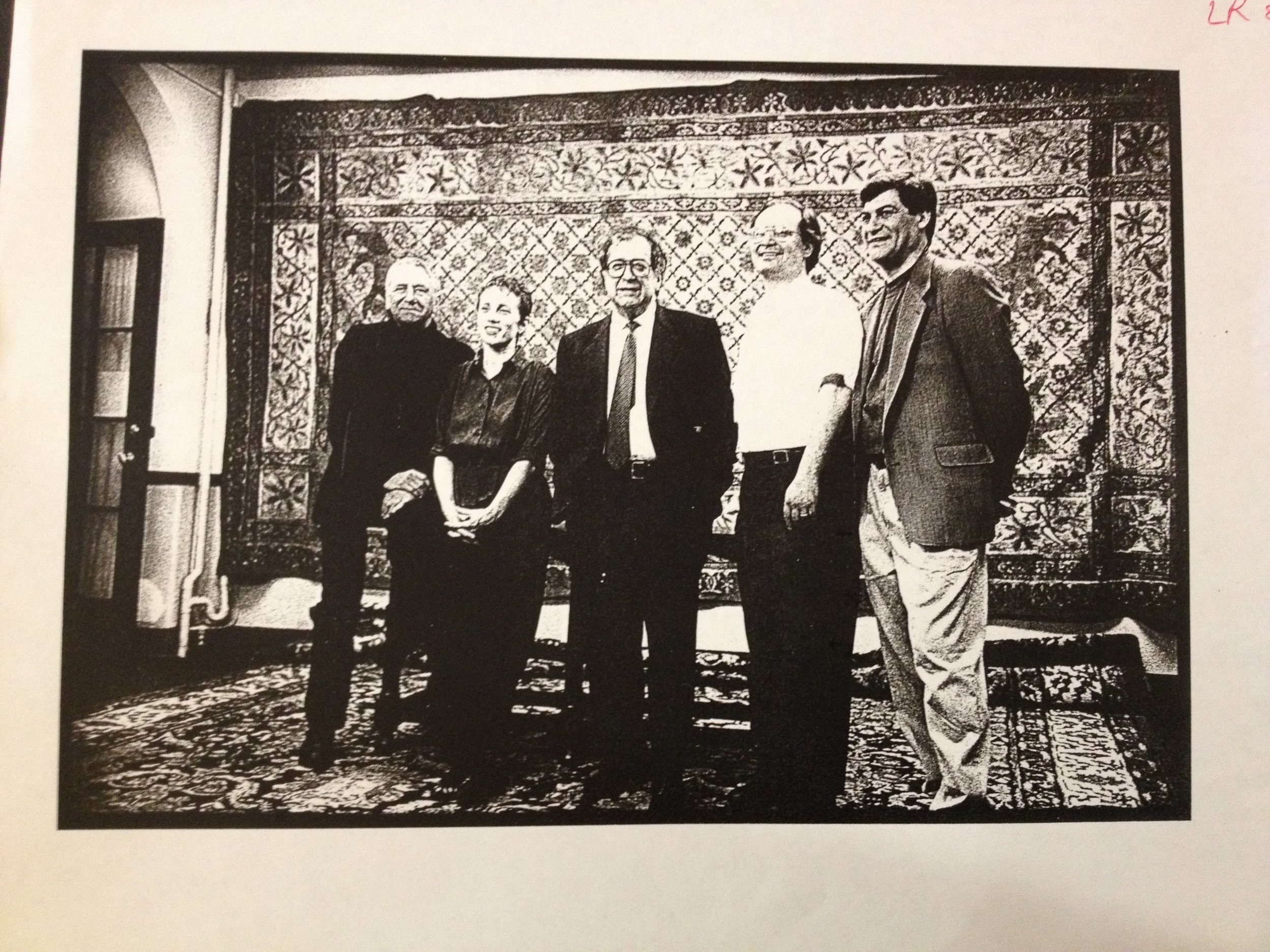A Tribute to Robert Capanna
Bernard Rands, Linda Reichert, Luciano Berio, Jan Krzywicki, Robert Capanna, circa 1993 at Settlement Music School
The Network for New Music community will greatly miss Bob Capanna’s presence in our lives. An active Network Advisory Board member, Bob was smart, kind, generous, and very supportive of our organization, as well as of composers, musicians and music students in general.
Known mostly for his transformative leadership of the Settlement Music School and his important work in the world of music philanthropy, Bob was also known as an excellent composer. Network has commissioned and/or performed several of Bob’s works over the past years, including “What I Know: Six Songs for Soprano and Chamber Ensemble”, set to original poetry by the composer; and “Piccolo Concertante” for saxophone quartet and string quintet, performed with the Prism Quartet. A stand-out commission is the recent string trio, “Too light, too light, like a sudden waking….” premiered in January 2017. This work, composed in response to poetry by Susan Stewart, is by turns lyrical and strident, with rigorous motivic development and a crystal-clear structure; it also reveals a humorous, playful side of Bob’s personality. Please enjoy the video of this performance by Network musicians (Hirono Oka, violin; John Koen, cello; and Burchard Tang, viola) performing Too light, too light, like a sudden wakening… and read Bob's "notes" from the January 2017 concert program collaboration with the Philadelphia Chamber Music Society, held at the Mary Louise Curtis Branch of Settlement Music School.
All of the invaluable contributions Bob Capanna made to the people and communities he so greatly affected will remain with us and continue to tangibly influence and aid us all in our work going forward.
The Music of Robert Capanna
Concert Program |PDF| Review in The Philadelphia Inquirer
"....constant state of dialogue...."
By Robert Capanna (excerpted from program notes, January 6, 2017)
I am very grateful to have been part of a lively and supportive music community in Philadelphia for my entire (40+ year!) professional career as a composer and musician. It has allowed me to pursue a less-than-typical career path while maintaining a fairly active and satisfying day to day existence as a composer, nurtured by the interest and support of fellow musicians and a pretty adventurous and dedicated audience. This wonderful collaboration between Network for New Music, the Philadelphia Chamber Music Society and the PRISM Quartet is only the latest and greatest demonstration of that interest and support.
It seems to me that one of the essential questions every creative person has to ask himself is “who am I doing this for?” Obviously, a lot of us might presume that the answer is “myself”, and clearly, we are our own most basic audience. It’s hard to imagine a circumstance where you would make art that you didn’t like (although I suppose some artists on an aggressive career path might make art for reasons in addition to being satisfied with it.) Nonetheless, “myself” seems like a pretty small group, so I believe that the wider audience of performers and listeners plays a key role in shaping who we are and who we become as composers and artists. I’m not trying to share the blame—I’m just saying that my music wouldn’t be what it is without the feedback and input from this wider circle of colleagues and friends, even those with conflicting or contrary ideas about what makes good or bad music.
In fact, as I look back over my work, or even over the four works on this program, it seems to me that I am in a constant state of dialogue—with musical ideas, technical issues and expressive aspirations—both from piece to piece and between the work and those that hear it and perform it. It’s not like writing the same piece over and over (and I certainly hope it doesn’t sound like the same piece again and again!), but it is like using ideas that morph and grow from piece to piece and lead to new combinations and new paths of expression. The pieces on this program are not only musically related—they actually have grown from each other in a fairly organic and spontaneous way.

